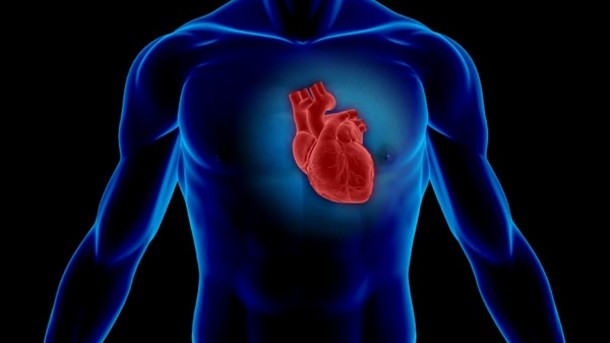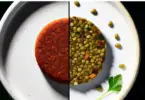Contributing writer for Wake Up World
There is a new buzz word regarding a possible predictor of a stroke, coronary heart disease or peripheral vascular disease, and that word is homocysteine; a non-protein alpha-amino acid derivative from the amino acid cysteine. Many epidemiological studies have shown that too much homocysteine in the blood (specifically the plasma portion) is related to a higher risk of cardiovascular events and atherosclerosis, the plaquing of the arteries.
So how does one collect so much homocysteine in the blood that it can result in such serious health risks?
The answer is simple: diet, lifestyle factors and chronic stress.
Stress, Vitamins and Homocysteine
[pro_ad_display_adzone id=”110028″]
A major factor that contributes to an increase of homocysteine in the blood is a deficiency of three different, yet co-dependent, B-group vitamins:
• Vitamin B9 (Folic Acid)
• Vitamin B6 (Pyridoxine)
Stress has long been known to deplete the body of B vitamins (and vitamin C), so this isn’t really a big surprise. And when we add poor diet choices along with the sedentary lifestyle and Standard American Diet (or SAD – a very appropriate acronym I might add!) the deficiency only worsens. This then can sets off a chain of reactions that ultimately lead to disease such as:
• Anxiety
• Chronic fatigue
These diseases are often compounded by conventional pharmaceutical “treatments”, which further deplete the body of vital nutrients.
Is it any wonder that cardiovascular disease is now the number one cause of death from any health condition (or should I say, disease condition) in the United States?
Strangely enough (but not surprising) the FDA and pharmaceutical companies want to ban vitamin B6 from the market, only to rename it as a drug to be sold only by prescription! By eliminating access to this vital nutrient, and with our food already nutrient-depleted, over processed, and full of chemicals, what are the chances that cardiovascular events will continue to increase? And what are the chances that this will increase the sales of even more pharmaceutical drugs?
Talk about irony!
A Vicious Cycle
Let’s talk about how homocysteine levels rise in the blood.
In order for the body to process homocysteine, it first must be converted to methionine (an essential amino acid), and this requires an enzyme called methionine synthase. But guess what, methionine synthase requires vitamin B12. If your vitamin B12 levels are low, this means that a vitamin B12 deficiency can easily be indirectly responsible for elevated homocysteine levels in the blood.
With an estimated 10 to 20% of Americans clinically vitamin B12 deficient, and with an unknown amount of people “sub-clinically” or borderline deficient, why isn’t more attention being given to this correlation?
Not only do we have a society that is both malnourished and overweight, we also have high societally- and self-induced levels of stress. And as I already mentioned, stress depletes B vitamins in the body.
Interestingly, there is one other major problem that is significantly involved with the absorption of B vitamins — gastrointestinal issues. When you are under constant stress, and/or eat poorly, it’s no secret the problems that it can cause to your digestive system. In fact, it is such a problem that entire aisles in the grocery store and drug stores are dedicated to just gastrointestinal issues! And, with gastrointestinal issues comes the inability to absorb nutrients such as Vitamin B2 (Riboflavin), Vitamin B3 (Niacin), Vitamin B6 (Pyridoxine) — and particularly Vitamin B12 (Cobalamin)!
What a cycle!
A Quick Word About Vitamin B9 (Folic Acid)
Folic acid is generally recognized as a pre-natal vitamin, which helps to prevent neural tube defects of the unborn child. It is also associated with anemia, which is most commonly the result of a deficiency of folic acid, vitamin B12 or iron. Besides that, hardly a mention apart from the minuscule amount prescribed as the Recommended Daily Allowance. gastrointestinal issues and other
So, based on what we know, it’s easy to make a connection between:
- Anemia and cardiovascular events, and/or
- Gastrointestinal issues and cardiovascular events, and/or
- Stress and cardiovascular events.
It is also very simple to make the appropriate corrections to reduce homocysteine levels and prevent its effects on the cardiovascular system.
How? By correcting dietary B vitamin deficiencies earlier on.
… And that’s the true meaning of disease prevention!
Resources:
- Natural News / Folic acid supplementation improves arterial elasticity to lower heart attack risk
- Heart.org / Homocysteine, Folic Acid and Cardiovascular Disease
- American Nutrition Association / Folic Acid for Heart Health
- AHA Journals.org / How Does Folic Acid Cure Heart Attacks?
Recommended articles by Dr. Michelle Kmiec:
- Fluoride Linked to Coronary Heart Disease
- Studies Prove Sweet Potatoes Heal Stomach Ulcers
- The Truth About Insomnia, Depression and Anxiety
- Are There Natural Cures for ALS?
- Natural Cure for Depression Silenced?
- The Link Between Stress and Intestinal Parasites – and What to Do About Them
- Arthritis Cure Found in Nature
- The Sun & Skin Cancer: Examining the Truths, Pseudo-Truths & Lies of Mainstream Science
- “Blame It On Your Genes”: the Money-Making Myth of Modern Medicine
- A Natural Cure for Migraines
- Natural Cure for Chronic Pain Syndromes Silenced by the Medical Establishment
About the author:
Dr. Michelle Kmiec is a board certified chiropractic physician who also holds a Bachelor of Science degree in Human Biology, and a minor in Medical Research. She is a life-long athlete who after curing herself 100% naturally from MS and anxiety, became an avid nutrition health researcher/promoter. She has been featured in many Health magazines, and has been a guest on radio talk shows in the USA, Canada, United Kingdom, and Australia. She is the author of Health Freedom Revolution: Exposing the Lies, Deceit and Greed of the Medical Profession’, Founder of Online Holistic Health, and a contributing writer for other popular informative health website/blogs. She is also founder of The Triad of Life™ Holistic Lifestyle Program – the most comprehensive holistic program on the internet today.
For more information, visit Online Holistic Health or connect with Dr. Michelle Kmiec on Facebook, Twitter and LinkedIn.
[pro_ad_display_adzone id=”110027″]








